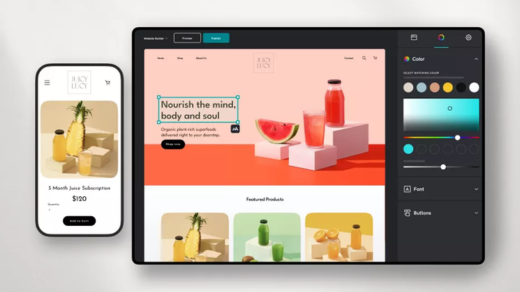The question itself reveals a common misconception. Most “beginner” recommendations focus on drag-and-drop simplicity, template variety, and extensive tutorials – as if the primary challenge is learning how to build websites. But here’s what most beginners actually need: a way to test their business idea quickly without getting overwhelmed in website creation complexity.
The real beginner’s dilemma is having a business concept that needs market validation but being blocked by the perceived need for a “professional website” before launching. This backwards approach kills more promising business ideas than market competition ever will.
Why Speed Matters More Than Features for New Entrepreneurs
Most beginning entrepreneurs suffer from the same trap: they believe they need full feature websites before they can start testing their business ideas. This perfectionist approach wastes months on website development when they should be validating whether customers actually want what they’re offering.
The most successful business launches happen when entrepreneurs can get their core value proposition in front of potential customers immediately. This requires tools designed specifically for rapid idea testing rather than comprehensive business websites. A quality website builder for launching an idea allows beginners to create focused landing pages that validate market demand without getting distracted by complex features they don’t yet need.
The speed advantage compounds quickly. While traditional website builders require weeks of learning curves, template customization, and feature configuration, purpose-built solutions can have beginners operational within hours. This means testing multiple business concepts, gathering real customer feedback, and iterating based on actual market response rather than theoretical planning.
Smart beginners recognize that their first online presence isn’t their final online presence. They prioritize getting customer feedback over perfecting design elements, and they choose platforms that enable rapid changes based on what they learn from real user interactions.
The Real Cost of Complexity
Traditional website builders marketed to “beginners” often create analysis paralysis through overwhelming choice. Hundreds of templates, dozens of features, and extensive customization options sound appealing but actually slow down the most important beginner activity: testing whether their business idea has market viability.
According to research from CB Insights, 42% of startups fail because there is no market need for their products or services, while only 18% fail due to pricing or technical issues. This data reinforces that entrepreneurs who spend excessive time perfecting their technology or website before validating market demand are focusing on the wrong priorities during the critical early stages.
The hidden costs extend beyond time investment. Complex platforms often require ongoing maintenance, regular updates, and technical troubleshooting that pulls focus away from business development. Beginners frequently find themselves becoming amateur web developers instead of focusing on their actual business concepts.
More importantly, feature-heavy platforms encourage entrepreneurs to solve problems they don’t yet have. They spend time configuring e-commerce systems before confirming anyone wants to buy, setting up complex navigation for content they haven’t created, and optimizing for search traffic when they should be driving social media engagement.
Smart Beginner Strategy
The most effective approach for beginners involves starting with the simplest viable solution that allows immediate market testing. This means choosing platforms that prioritize speed of deployment over comprehensive functionality, enabling rapid iteration based on real customer feedback rather than extensive pre-launch planning.
This strategy aligns with proven lean startup methodology: build minimal viable products, test with real customers, and iterate based on actual market response. Your first website should be a testing tool, not a comprehensive business solution.
The goal isn’t to create the perfect website immediately – it’s to validate whether your business concept resonates with potential customers. Sometimes a simple landing page that clearly communicates your value proposition will outperform elaborate websites that confuse visitors with too many options.
Smart beginners also recognize that their business model will likely evolve based on customer feedback. Choosing flexible platforms that allow quick changes costs less and delivers better results than investing heavily in comprehensive solutions that may need complete overhauls after market validation.
Your business idea is more important than your website sophistication. The best website builder for beginners is the one that gets out of your way and lets you focus on the most critical beginner task: discovering whether customers actually want what you’re planning to offer. Start simple, test quickly, and build complexity only after you’ve confirmed market demand.

